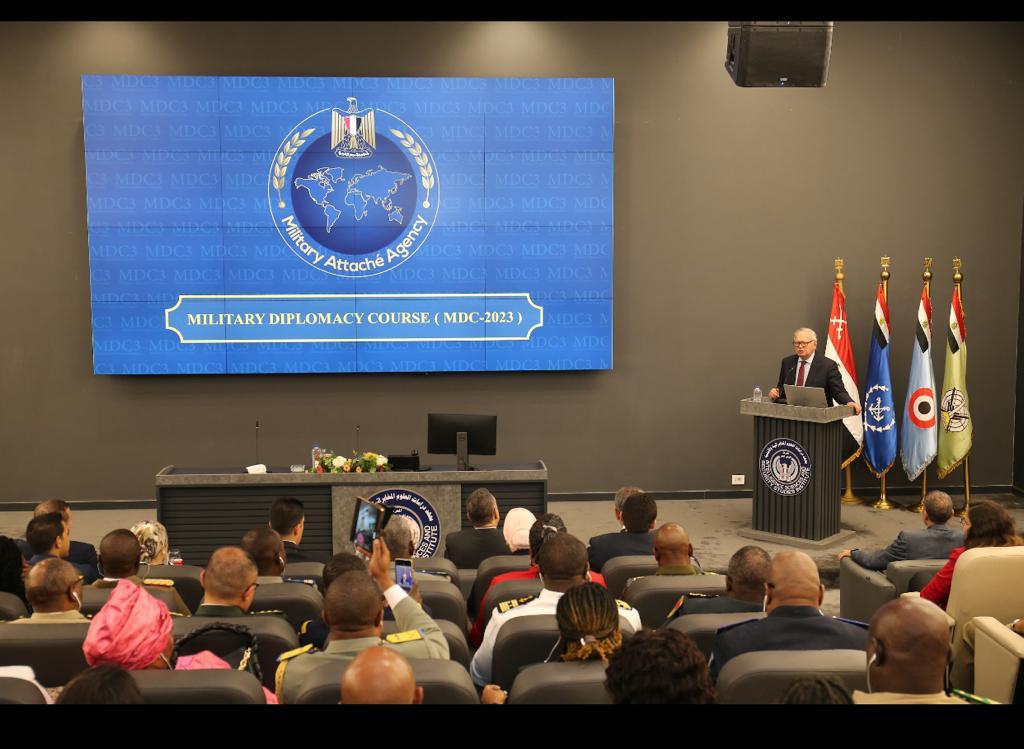ECFA members visit the Administrative Capital
June 22, 2023Visit by ECFA delegation to Belgrade
July 2, 2023
In a remarkable display of regional autonomy against a backdrop of international polarization, Egypt and India have emerged as exemplars of cooperation and understanding.
The two nations have banded together to forge a unique model of regional independence as significant players on the global stage.
With recent tensions and divisions making headlines worldwide, Egypt and India have undertaken a strategic initiative to chart their own destinies while collaborating to preserve their positions as pivotal regional powers.
This innovative approach stems from their unwavering dedication to ensure the security and stability of their respective environments ─ Egypt focusing on the Arab world, Africa, the Middle East and the Mediterranean, while India exerts its influence in South Asia.
The timing of Indian Prime Minister Narendra Modi’s visit to Cairo is of utmost significance. He comes at a time when the international arena faces intricate challenges following the global upheaval caused by the COVID-19 pandemic.
Additional complexities, driven by the Russian-Ukrainian conflict among other polarizations worldwide, have added immense pressure to the regional dynamics Egypt and India currently navigate.
Egypt and India’s joint endeavour to strengthen relations underscores their commitment to establishing a secure and harmonious regional environment. By charting their own course amidst furious global headwinds, these nations present a captivating model of resilience and tenacity.
Their unwavering determination to foster cooperation and understanding serves as an inspiration to nations across the globe, demonstrating that even in an era of intense international polarization, a path of collaboration and diplomacy can be charted.
The recent visit of the Indian Prime Minister to Cairo marks a significant milestone in the deepening friendship between Egypt and India. This visit comes just five months after President Abdel-Fattah El-Sisi attended India’s Republic Day celebrations as the esteemed chief guest of honour. The strategic exchange of visits emphasizes the profound importance India places on its relationship with Egypt and its leader, as well as its dedication to fostering robust Egyptian-Indian relations.
One core aspect of the burgeoning partnership between Egypt and India lies in their mutual commitment to ensure security and stability in international navigation. Both nations recognize the vital role they play in safeguarding the Red Sea, the Suez Canal, and the Arabian Sea.
India, with its aspirations to establish a framework for unhindered navigation across the Indian and Pacific Oceans, crossing freely to Europe via the Suez Canal, places particular emphasis on its strategic bonds with Egypt.
Recently, relations between the two powers exhibited strong signs of transformation. The visit of Indian Defense Minister, Ragnath Singh, to Cairo last September underscored this notion. During the visit, a memorandum of military cooperation was signed, outlining joint efforts in training, combating terrorism, and bolstering military and security relations.
Egypt’s inclusion in India’s defense dialogue with Africa further solidifies this growing alliance. The two nations also engage in crucial joint naval military maneuvers, assuring regional security and unhindered navigation spanning from the Indian to the Atlantic Ocean and to the Mediterranean via the Red Sea and Suez Canal.
The visit of the Indian Prime Minister to Cairo signifies the shared commitment of Egypt and India to elevate their bilateral ties to new heights. With each exchange of visits and the signing of cooperative agreements, the foundation for a prosperous future is being laid, promising a strong and enduring Egyptian-Indian alliance.
The current balance of trade between the two countries has reached $7 billion yearly, while mutual investment, mainly from the Indian side, surpassed $3.5 billion this year.
It has become evident from various indicators that the strategic path of relations between Egypt and India is on an upward trajectory. Notably, as current chair of the G20, India extended a generous invitation to Egypt to attend the next G20 summit, scheduled to take place in New Delhi 9-10 September, 2023. This invitation symbolizes the recognition of Egypt’s significant role in global affairs.
Just a day before the visit of Prime Minister Narendra Modi to Cairo, the Egyptian president was on his way back from Paris, where he had been invited by French President Emmanuel Macron to attend a global finance summit. This, like Egypt’s upcoming participation at the G20 summit, shows the country’s growing and appreciated leadership in world affairs.
India’s support for Egypt’s potential membership in the BRICS group, which currently comprises Brazil, Russia, India, China and South Africa, further underscores the deepening ties between the two nations. Moreover, the Indian Prime Minister has expressed a keen interest in providing crucial economic and investment support to Egypt.
We may also recall that during the COP27 climate summit held in Sharm El-Sheikh, Indian companies committed to investing a substantial $18 billion in Egypt’s green hydrogen industry.
India continues to exhibit earnest goodwill towards Egypt. Despite a recent ban by India’s government on the export of Indian wheat, Egypt was made an exception. Such actions highlight India’s commitment to ensuring Egypt’s food security and to providing economic support to its friend and reliable strategic ally.
India’s standing as one of the largest economies in the G20, its major capabilities in science and its cutting-edge technologies also present opportunities for Egypt. India’s advancements in space technology, nuclear technology, genetic engineering, artificial intelligence, and new renewable energy can be harnessed by Egypt without restriction, offering immense potential for mutual and future benefits.
There is also a call to establish an Egyptian-Indian technical university modeled after the renowned Indian Institute of Science in Bangalore, one of India’s oldest and most prestigious universities. Such an institution would serve as a catalyst for further collaboration and innovation.
Further strengthening economic, investment, and production partnerships, the recent visit of the head of the Suez Canal Economic Zone (SCZONE) to India will also open an opportunity for the establishment of an Indian industrial zone in the SCZONE for major Indian companies and manufacturers.
This would allow India to leverage Egypt’s immense energy resources and industrial potential, taking advantage of the region’s unique geography and central location for exports to the rest of the world.
India’s economic achievements in recent years are commendable. Despite the challenges posed by the COVID-19 pandemic, it consistently attracts foreign investment, with an estimated $80 billion influx in 2020. Since 2014, India has embraced the “Made in India” principle, solidifying its position as one of the world’s largest manufacturers.
Lastly, it is essential to reflect on the historical ties between Egypt and India. As pioneers in the Non-Aligned Movement, they played a crucial role in ensuring stability during the Cold War. Today, they are qualified to navigate the complexities of international polarization and reinforce independence, especially given the regional arrangements that safeguard the rights of local countries in the face of mounting international pressure.
With these developments and prospects for cooperation, Egypt and India are embarking on a promising new era of strategic partnership. As the world continues to evolve, this strategic alliance holds great potential for both nations in terms of economic growth, technological advancements, and geopolitical influence.





